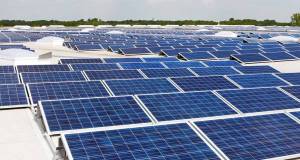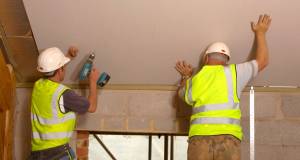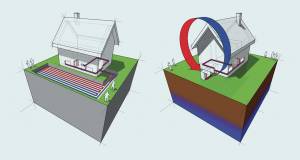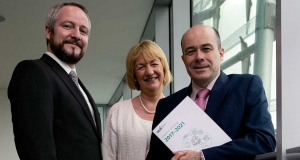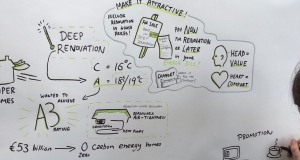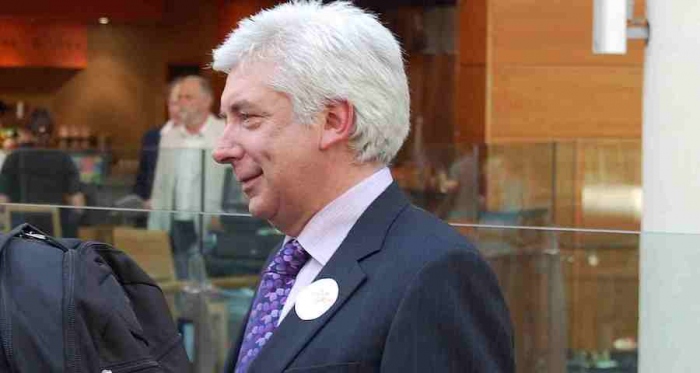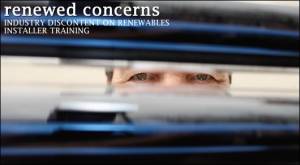grants - passivehouseplus.ie
Government supported almost 27,200 home energy upgrades through SEAI in 2022
Solar panels to receive VAT drop in aim to boost uptake
In a bid to increase the uptake of solar technology in Ireland as families and businesses continue to negotiate the energy and cost of living challenges, the Irish government has announced they intend to drop the VAT rate on the supply and installation of solar panels to zero.
Huge demand for new deep retrofit grants
Some one-stop-shops will not take on projects with new build extensions.
Major new grants for retrofit & insulation announced
The Irish government has announced significant new grants designed to make it “easier and more affordable” for homeowners to undertake home energy upgrades.
SuperHomes Ireland seeks deep retrofit grant applicants
Applications are now open for 2020 for SuperHomes, the ‘one-stop shop’ scheme for home retrofit projects.
Heat pump grants - what you need to know
As of 16 April, owners of pre 2011 Irish homes are now eligible for generous grants to retrofit heat pumps, and in so doing help to create comfortable, economical, low carbon homes. But what’s the thinking behind the scheme, and what results can participating homeowners expect?
Government announces suite of retrofit grants
SuperHomes scheme offers home retrofit support
SuperHomes, a groundbreaking project designed to help homeowners to upgrade their homes to an A3 BER is open for applications.
SEAI announces 250,000 euro grants for large energy upgrades
The Sustainable Energy Authority of Ireland (SEAI) has launched the EXEED (Excellence in Energy Efficient Design) certified programme, a new management framework which complements the Irish Energy Efficient Design Standard IS399. Up to €250,000 per applicant has been made available in 2016 for businesses or organisations undertaking a building retrofit, facility or process upgrade which follows the EXEED principles to maximise energy efficiency.
Irish government increases energy efficiency grants
Irish minister for energy Alex White has announced a boost in the level of grants available to householders who want to undertake energy efficiency improvements. The cash value of every grant available to householders under the Better Energy Homes Scheme has been increased by between 25 to 50%. In addition, a bonus payment has been introduced which will see householders receive bonus payments if they complete three or more energy efficiency improvements.
Cuts to insulation grants will cost jobs, warns Construct Ireland
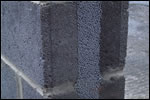
The government's cuts to its Better Energy grants will cost jobs and make it extremely difficult for Ireland to meet its retrofit and energy reduction targets, green building magazine Construct Ireland has warned.
Following the budget, the Sustainable Energy Authority of Ireland reduced grants for cavity wall insulation from €320 to €350. Grants for internal and external wall insulation were also reduced — previously these were €2,000 and and €4,000 respectively, but now separate rates have been introduced for different house types, with the maximum being €1,800 for internal insulation and €3,600 for external.
Grants for heat pumps and biomass boilers withdrawn
The government is withdrawing grant support for heat pumps and biomass boilers and reducing grants for other energy efficiency upgrades as part of its new Better Energy national building upgrade programme. The government has allocated an additional €30m to the programme this year in addition to the €60m set aside in this year's budget. It expects the extra funding to support an additional 2,000 jobs in the retrofit sector in 2011.
Home and dry

Homeowners thinking of applying for Home Energy Saving scheme grants should pay close attention to a renovation project in Stillorgan, south Dublin. The refurbishment boasts every upgrade measure grant-aided under the scheme, including three types of wall insulation, a high efficiency boiler and sophisticated heating controls. Lenny Antonelli visited the house to find out more.
Renewed Concerns
Sustainable Energy Ireland was initially criticised by some quarters for the lack of vetting of renewable energy installers registered under the Greener Homes Scheme. However, the recent introduction of mandatory training for those on the register has also proven controversial, writes Lenny Antonelli.
Free Heat
As Ireland struggles to meet its commitments to reducing CO2 emissions in accordance with the Kyoto Protocol, the renewable energy sector continues to flourish as wind farms rapidly develop and solar energy becomes increasingly viable
Clear skies
Construct Ireland investigates what measures the Irish government is undertaking to actively encourage the homeowner to switch to non-polluting renewable energy sources.
Renewable Energy Grants

As oil prices surge and the need to rapidly switch to energy sources that are secure and environmentally friendly becomes increasingly apparent, more and more Irish people are tapping into the renewable energy resources at their disposal. But are the Government giving people the incentive to make the switch?
Renewable Energy Grants (Jeff Colley)

The first scheme of renewable energy grants for Irish homeowners, the Greener Homes Scheme, was launched on Monday 27th March 2006 and will make grant funding available to homeowners looking to install renewable energy heating technology
Geo Dynamics

Richard Douthwaite looks at the viability of heat pumps, and the factors that could determine their future role in a changing energy landscape.

